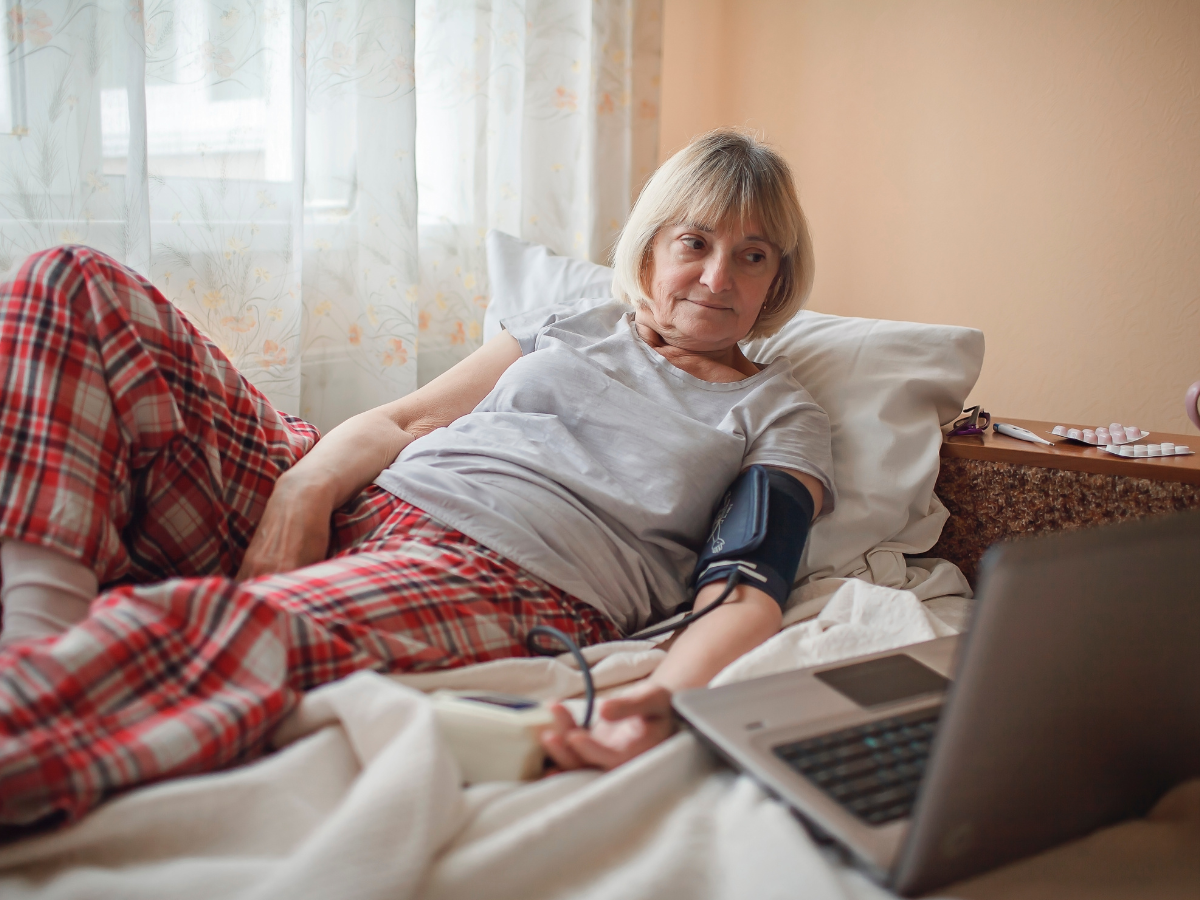How RPM Supports Chronic Pain Management
In many discussions about remote patient monitoring (RPM), chronic pain management is left out of the mix. The complex nature of chronic pain means that no two patients experience it in the same way. This also means that finding effective treatment for each patient can be a challenge. That’s where RPM can help—it opens the door to personalized, at-home treatment and monitoring, supporting better management of chronic pain.

Remote Patient Monitoring 101: The Basics
Remote patient monitoring is a form of digital healthcare that enables providers to monitor patients outside traditional clinical settings. Using digital devices and telehealth technology, RPM collects and transmits patient data to providers, allowing them to deliver more personalized and effective care.
Though RPM can be used for both acute and chronic conditions, its benefits are perhaps most significant for the latter.
RPM technology can reduce the number of clinic visits patients need while still ensuring they receive the same—if not higher—quality of care.
These benefits suggest that RPM could unlock new opportunities for supporting patients with pain management.
A Key Opportunity for RPM: Chronic Pain Management
One area of long-term care often overlooked when it comes to RPM is chronic pain management.
Few studies have actively explored how RPM can be used to support patients with chronic pain, so its potential applications have only just begun to emerge. Still, RPM’s nature and observable benefits suggest it could be an invaluable tool for pain management, too.
Leveraging RPM for chronic pain management can help both patients and providers:
- Learn more about pain triggers and relief methods
- Track patient responses to clinical interventions
- Monitor and log pain symptoms over time
- Communicate in real-time about pain symptoms or concerns
- Track vital health metrics affected by pain or pain treatments
How to Use RPM for Pain Management: Devices & Examples
Combining RPM devices with an RPM platform or software allows providers to gain real-time data insights and centralize patient information for easy access. Let’s explore some tools that can do just that.
Mobile Apps
A mobile app enables patients to share experiences with providers, log symptoms, and participate in synchronous clinical visits.
This tool helps fill the treatment gap between in-person appointments, especially in chronic pain management, where what patients do (or don’t do) between visits can significantly impact outcomes.
The ability to communicate outside clinical settings allows providers to offer follow-up instructions like never before.
In one case series, for instance, three patients with chronic lower back pain were asked to use a mobile app for 12 months following discharge from in-person treatment.
A combination of telehealth visits and app usage helped all patients meet their treatment goals, adhere to their home exercise programs, and become more self-sufficient. Although all patients experienced a temporary increase in pain, they managed it effectively using the digital health tools provided.
Activity Trackers
For patients whose treatment involves physical activity, wearable health devices like activity trackers provide a simple but effective way to monitor adherence.
Even in cases where regular activity isn’t a treatment requirement, these devices can reduce pain by visualizing movement patterns. Logging physical activity alongside symptom information may also help identify triggers or activities that support better pain management.
Respiratory Monitors
Patients using certain medications, particularly opioids, may benefit from RPM devices that measure blood oxygen levels, respiratory rates, pulse, and other key vitals. Monitoring respiratory activity allows providers to detect concerning changes or signs of nonadherence early, enabling quick action.
Unlock the Power of RPM for Chronic Pain Management with CoachCare
Chronic pain management is just one of many possible RPM applications. The best way to ensure your RPM program delivers value to both your practice and your patients is to work with a reputable vendor that provides the resources you need to succeed.
CoachCare is a leading RPM software and device provider, committed to making revolutionary health technology accessible. Our team can help you choose the right devices, monitor patient data, and navigate billing.
Ready to learn more about how RPM can fit into your approach to care? Reach out today to start a conversation.